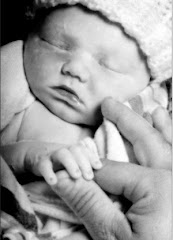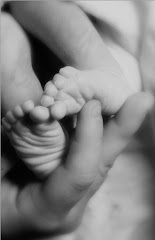Yes, he is laying on the dog and she couldn't care less
Balian and Granny Jan
"A Series Of Unfortunate Events" (and one good one)
Here are a few shots (including the short little vid) of our new boy, only a few hours old.
Yep, I'm cuttin' the cord.
No. Its just gas.
Ready to go home.
Introductions...."What the hell is this?"
"Ok, I guess he can stay. But only for a while."
More to come soon........


 (Click for a closer view)
(Click for a closer view)
Sooo, from all of our family, thank you Jason, thank you.






 Ok. First off, I know this is a really strange post (especially for me), but I have found a product that I really, really like.
Ok. First off, I know this is a really strange post (especially for me), but I have found a product that I really, really like. All you have to do is push the little plastic handle thingee onto the bowl and that's it. The TV commercials say that each little gel "star" will last about a week and there is enough gel for 6 applications, that a month and a half. except (for us, just me and Heather) each gel "disk" lasts 2 to 3 weeks. That's three months or more for about $3.50. and the best part is it actually works.
All you have to do is push the little plastic handle thingee onto the bowl and that's it. The TV commercials say that each little gel "star" will last about a week and there is enough gel for 6 applications, that a month and a half. except (for us, just me and Heather) each gel "disk" lasts 2 to 3 weeks. That's three months or more for about $3.50. and the best part is it actually works.





-- TS Eliot, The WastelandApril is the cruelest month, breedingLilacs out of the dead land, mixingMemory and desire, stirringDull roots with spring rain.

